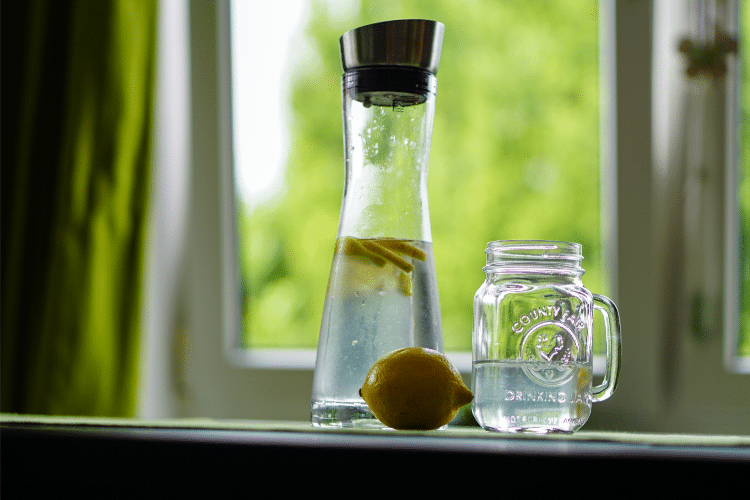
Best foods That Help Decrease Eczema Flare-Ups {Including Infographic}
Eczema is an inflammatory condition that causes dry patches and itchy skin all over the body. It is also commonly referred to as atopic dermatitis. Apart from skin irritation, it can cause oozing blisters and severe rashes, and over time, it can result in leathery skin patches in the affected areas. Eczema is a chronic condition that can occasionally flare up. While it is most common among toddlers, it can also affect adults. Among other treatments, one way to avoid inflammation caused by eczema is by consuming the right foods. Here is a list of foods that contain properties that help in decreasing eczema flare-ups.
Anti-Inflammatory Diet
Before getting on to the list of foods to consume, here are some basics you need to know to create an eczema diet plan. This plan mainly focuses on eliminating foods that cause inflammation and including those that fight it. Some super foods that should be included in the diet are green vegetables, healthy fats, fish, probiotics, and fruits (except citrus). Natural remedies can be used to cleanse the system and treat Eczema
Avoiding any food that makes your symptoms worse is an excellent way to go. Foods that can trigger an eczema flare-up and must be eliminated from your diet are eggs, soy, spices, tomatoes, citrus fruits, sugary desserts, and red meat.
Let us now look at the foods that must be consumed in detail.
Cruciferous Vegetables
Cruciferous veggies have shown good results in reducing inflammation. Vegetables like cabbage, broccoli, cauliflower, and celery are rich in antioxidants and contain vitamins and minerals that are anti-inflammatory. They help lower the oxidative stress in the body and help you battle eczema with the help of phytonutrients, flavonoids, and omega-3 fatty acids. They are also rich in fiber, which helps in expelling toxins from the body.
Honey
Honey is said to have powerful antibacterial properties that are helpful for those suffering from bacterial infections and eczema. Manuka honey, especially, is rich in enzymes that create a strong antibacterial barrier and have a healing effect on wounds, bruises, and even eczema patches. The non-hydrogen peroxide present in the honey is helpful for people suffering from severe itching. It can even be applied as an atopic treatment to reduce irritation.
Probiotics
Foods containing probiotics help in reducing the flare-ups or allergic reactions typically caused by eczema. As we are aware, eczema and its symptoms impair the immune system. Probiotics boost immunity and enhance digestion as they increase the number of good bacteria in the gut. Some probiotic-rich foods that are good for the stomach include soft cheese, kefir, and sourdough bread.
Turmeric
Turmeric contains an active ingredient called curcumin, which is rich in antioxidants and exhibits anti-inflammatory properties. It can be used to treat many ailments, including eczema. It is mostly used as an atopic treatment and works by reducing inflammation, redness, and itchiness caused by eczema.
Fish
Omega-3 fatty acids can significantly reduce inflammation in the body. And one such food that is a natural source of omega-3s is fish. Consumption of fatty fish helps reduce the symptoms of eczema, majorly inflammation, provided you are not allergic to fish. You can also consume fish oil to help reduce inflammation in the body.
Fruits
Fruits that help reduce the symptoms of eczema are pineapple, apples, papaya, and berries. They contain vitamins and minerals that strengthen the immune system. They offer significant anti-inflammatory benefits along with healthy digestion and nutrient absorption. One primary concern that people suffering from eczema have is a weak digestive system. These fruits enhance gut function and aid toxin elimination.
Dealing with Eczema is not easy, so it is always best to consult an expert before preparing a diet plan. As it can help with the Treatment of Eczema better when you know what is triggering it. A good diet can positively impact the symptoms by supporting the bodily functions and strengthening the immune system. During this period, it is best to avoid packaged, processed, and sugary foods.
Apart from following a proper diet, staying hydrated, consuming food within the daily calorie requirements, and taking plenty of rest are important to reduce eczema symptoms. Some people also consider eliminating all meat and animal foods from their diet and sticking to a purely plant-based diet to reduce inflammation. Transitioning to a new diet may be quite a task, but adjusting your diet plan with the help of a medical professional can help you fight eczema.







